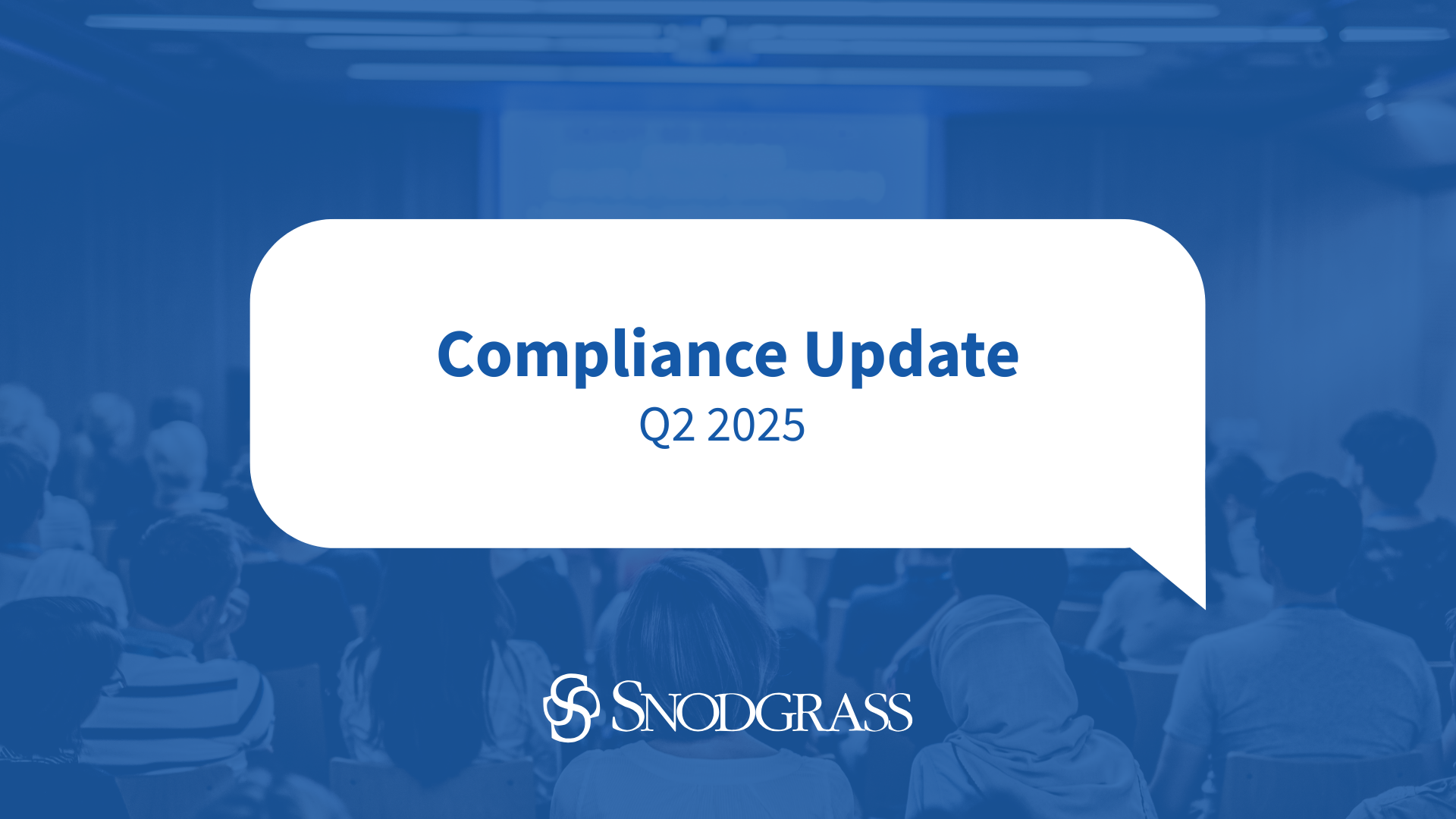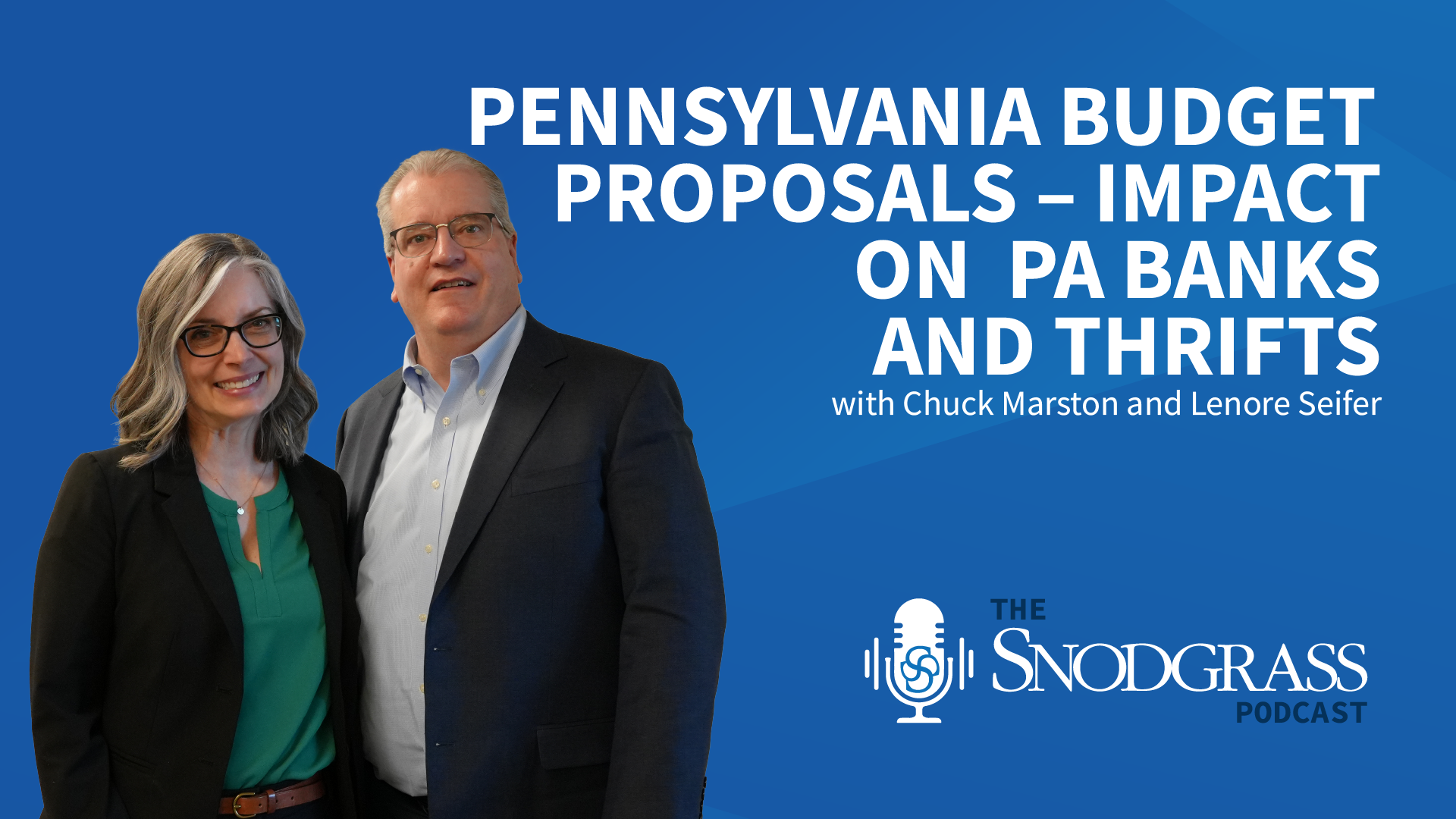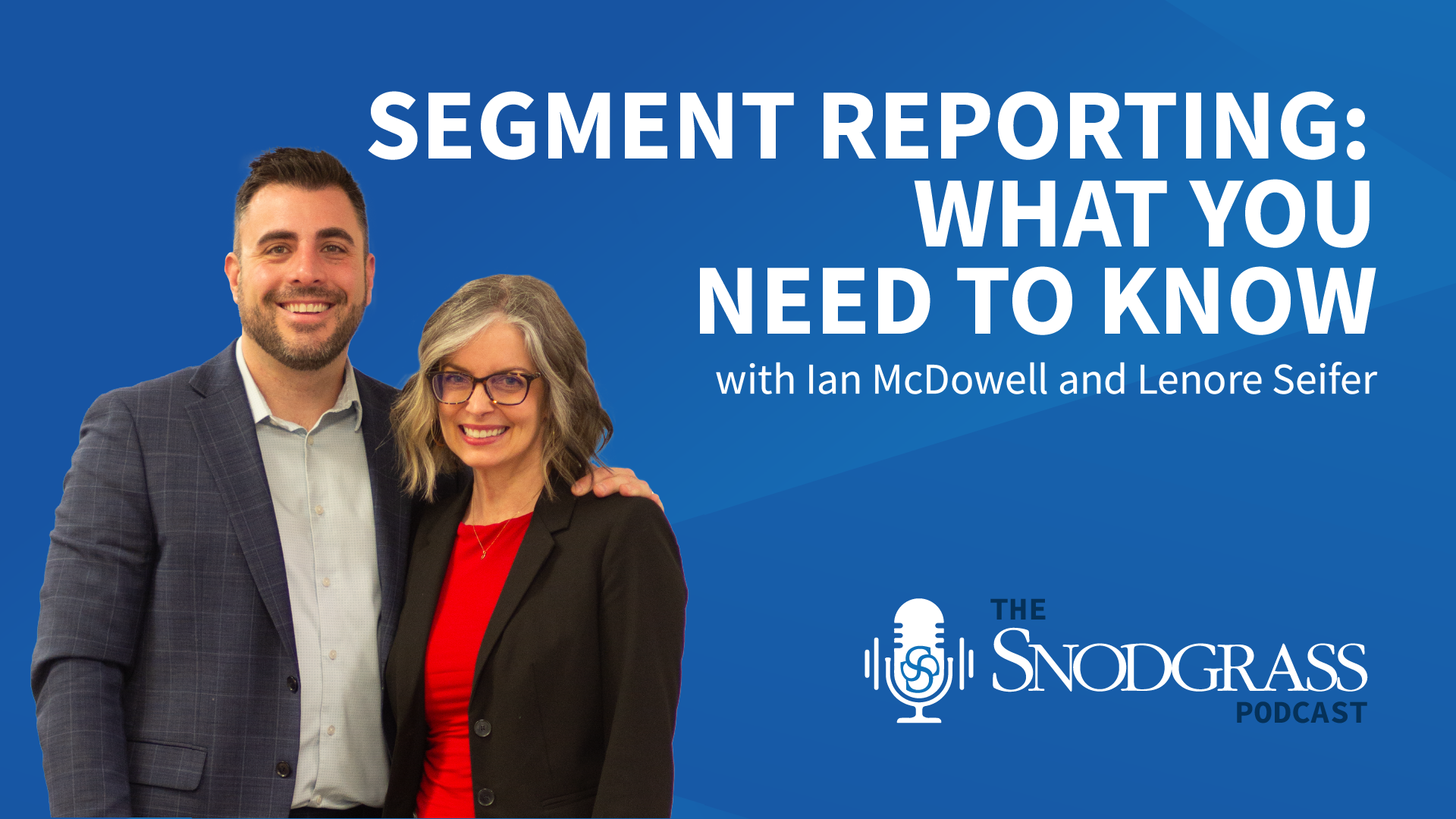Financial Crimes Enforcement Network (FinCEN) Proposes to Strengthen and Modernize Anti-Money Laundering and Countering the Financing of Terrorism (AML/CFT) Programs
FinCEN announced a proposed rule to strengthen and modernize financial institutions’ AML/CFT programs. While financial institutions have long maintained AML/CFT programs under existing regulations, this proposed rule would amend those regulations to explicitly require that such programs be effective, risk-based, and reasonably designed, enabling financial institutions to focus their resources and attention in a manner consistent with their risk profiles. Effective, risk-based, and reasonably designed AML/CFT programs are critical for protecting national security and the integrity of the U.S. financial system. The proposed amendments are based on changes to the Bank Secrecy Act (BSA) as enacted by the Anti-Money Laundering Act of 2020 (AML Act) and are a key component of Treasury’s objective of building a more effective and risk-based AML/CFT regulatory and supervisory regime.
This proposed rule would:
- amend the existing program rules to explicitly require financial institutions to establish, implement, and maintain effective, risk-based, and reasonably designed AML/CFT programs with certain minimum components, including a mandatory risk assessment process
- require financial institutions to review government-wide AML/CFT priorities and incorporate them, as appropriate, into risk-based programs, as well as provide for certain technical changes to program requirements
- promote clarity and consistency across FinCEN’s program rules for different types of financial institutions
The proposal also articulates certain broader considerations for an effective and risk-based AML/CFT framework as envisioned by the AML Act. For example, through its emphasis on risk-based AML/CFT programs, the proposed rule seeks to avoid one-size-fits-all approaches to customer risk that can lead to financial institutions declining to provide financial services to entire categories of customers. The proposal is consistent with a key recommendation in the Treasury’s De-risking Strategy, which recommended proposing regulations to require financial institutions to have reasonably designed and risk-based AML/CFT programs supervised on a risk basis and taking into consideration the effects of financial inclusion. Finally, the proposed rule would encourage financial institutions to modernize their AML/CFT programs where appropriate to responsibly innovate, while still managing illicit finance risks.
FinCEN’s proposal was prepared in consultation with the Federal Reserve Board, the Office of the Comptroller of the Currency (OCC), the FDIC, and the National Credit Union Administration (NCUA) in order to collectively issue proposed amendments to their respective BSA compliance program rules for the institutions they supervise.
Written comments on FinCEN’s proposed rule must be received on or before 60 days following its publication in the Federal Register.
FinCEN updates Beneficial Ownership Information Frequently Asked Questions (FAQs); Warns of Scam
FinCEN has updated its Beneficial Ownership Information FAQs, adding three new Reporting Company questions (questions C.12 – C.14), and one new Beneficial Owner question (question D.17).
In related news, FinCEN has posted an alert on its Beneficial Ownership Information web page concerning fraudulent attempts to solicit information from individuals and entities who may be subject to reporting requirements under the Corporate Transparency Act.
Consumer Financial Protection Bureau (CFPB) Proposes Streamlining Mortgage Servicing for Borrowers Having Difficulties
The CFPB announced proposed new rules to make it easier for homeowners to get help when they are struggling to pay their mortgage. The proposed amendments to Regulation X, if finalized, would require mortgage servicers to focus on helping borrowers, not foreclosing, when a homeowner asks for help. The proposed changes would also make it simpler for servicers to offer assistance by reducing paperwork requirements, improve communication with borrowers, and ensure critical information is provided in languages borrowers understand. The CFPB is requesting comment about several other topics, including possible approaches it could take to ensure servicers are furnishing accurate and consistent credit reporting information for borrowers undergoing review for assistance.
The current regulations governing mortgage servicing took effect in 2014. The rules have rigid timing and other requirements that servicers must follow in all cases. The rules also rely on borrowers submitting all their documents before the servicer begins its review or pauses foreclosure proceedings. In 2022, the CFPB asked the public for input on improving protections for borrowers facing financial hardships. The CFPB heard from both the mortgage industry and borrower advocates that a simpler, more flexible approach to mortgage assistance would be helpful.
If the proposal is finalized, it would:
- Stop dual tracking and limit fees. The proposed rule would require servicers to try to help borrowers first, before foreclosing, when they request assistance. Servicers would generally only be allowed to move ahead with foreclosure after all possibilities for assistance are exhausted or the borrower has stopped communicating with the servicer. The proposal would also limit the fees a servicer can charge a borrower while the servicer is reviewing possible options to help the borrower.
- Reduce delays by streamlining paperwork requirements. Currently, a servicer cannot evaluate whether a borrower is eligible for assistance without a “complete application” that includes all information needed to assess eligibility for all available options. This can delay assistance offers, hurting both homeowners and servicers. Under the proposal, servicers would have more flexibility to review borrowers for each option individually, potentially enabling quicker assistance.
- Improve borrower-servicer communications. The proposed rule would require servicers to provide more tailored notices to borrowers, so they know what actions they can take if they want to. This includes changing the notices that borrowers get shortly after missing a payment to include information about who the loan investor is and how to get information about available assistance.
- Ensure borrowers receive critical information in languages they understand. Under the proposal, borrowers who received marketing materials in another language could request mortgage assistance communications in that same language. The proposed rule would also require servicers to provide the improved notices in both English and Spanish to all borrowers, as well as make available oral interpretation services in telephone calls with borrowers.
The new provisions would not apply to small servicers. All existing requirements remain in effect until the effective date of a final rule.
https://files.consumerfinance.gov/f/documents/cfpb_mortgage-servicing-nprm-proposed-rule_2024-07.pdf
https://files.consumerfinance.gov/f/documents/cfpb_unofficial-redline-nprm_2024-07.pdf
Federal Deposit Insurance Corporation (FDIC) Updates Risk Management Manual
The FDIC has updated section 3.2 (Loans) of its Risk Manual of Examination Policies. The discussion related to the issuance of “Express Determination” letters has been updated to reflect current accounting guidance regarding the allowance for credit losses on loans and leases and procedures related to examinations conducted under the FDIC’s continuous examination program. Additional updates include the concurrent deletion of the “Troubled Commercial Real Estate Loan Classification Guidelines” and update to the “Commercial Real Estate Loans” sections.
https://www.fdic.gov/resources/supervision-and-examinations/examination-policies-manual/index.html
Regulatory Agenda Updates
The White House’s Office of Information and Regulatory Affairs has released its Spring 2024 Unified Agenda of Regulatory and Deregulatory Actions, or URA. This semiannual report details each federal agency’s upcoming plans to issue or rescind regulations.
The CFPB’s agenda includes four proposed rule actions, addressing the Fair Credit Reporting Act, or FCRA, mortgage servicing, the Financial Data Transparency Act, and consumer financial product contracts under Regulation AA. In June, the bureau released the initial part of its FCRA rulemaking and a final rule regarding the attributes a standard-setting body must demonstrate in order to be recognized by the CFPB for purposes of the personal data rights rule; the bureau plans to finalize the remainder of the proposed rule regarding personal data rights rule in October.
According to the URA, the CFPB projects it will release a final rule on nonsufficient fund fees in October and on overdraft fees in January 2025.
FinCEN reported an October target for its revisions to the Customer Due Diligence rule and is aiming for a May 2025 reveal of proposed rules on 314(b) information sharing protections.
https://www.reginfo.gov/public/do/eAgendaMain
Agencies Finalize Guidance on Reconsiderations of Value
Five federal agencies—the CFPB, FDIC, Federal Reserve, NCUA, and OCC—jointly announced final guidance addressing reconsiderations of value (ROVs) for residential real estate transactions. The guidance advises on policies and procedures that financial institutions may implement to allow consumers to provide financial institutions with information that may not have been considered during an appraisal or if deficiencies are identified in the original appraisal.
ROVs are requests from a financial institution to an appraiser or other preparer of a valuation report to reassess the value of residential real estate. Deficiencies identified in valuations, either through an institution’s valuation review processes or through consumer-provided information, may be a basis for financial institutions to question the credibility of the appraisal or valuation report.
The guidance offers examples of ROV policies and procedures that a financial institution may implement to help institutions identify, address, and mitigate discrimination risk; describes the risks of deficient residential real estate valuations; and explains how financial institutions may incorporate ROV processes into risk management functions. The agencies finalized the guidance largely as proposed, with the addition of clarifying edits based on public comments received on the proposed guidance published in July 2023.
The guidance is final as of the date it is published in the Federal Register.
https://www.federalreserve.gov/newsevents/pressreleases/bcreg20240718a.htm
Agencies Issue Final Automated Valuation Model (AVM) Rule
Six federal agencies—the CFPB, FDIC, FHFA, Federal Reserve Board, NCUA, and OCC—have jointly announced their issuance of a final rule required by the Dodd-Frank Act and designed to help ensure the credibility and integrity of models used in valuations for certain mortgages secured by a consumer’s principal dwelling. In particular, the rule will implement quality control standards for AVMs used by mortgage originators and secondary market issuers in valuing those homes. The final rule is substantially similar to the proposal issued in June 2023.
Under the final rule, the agencies will require institutions that engage in certain transactions secured by a consumer’s principal dwelling to adopt policies, practices, procedures, and control systems designed to:
- ensure a high level of confidence in estimates
- protect against data manipulation
- seek to avoid conflicts of interest
- require random sample testing and reviews
- comply with nondiscrimination laws
The agencies said that, driven in part by advances in database and modeling technology and the availability of larger property datasets, AVMs are being used with increasing frequency as part of the real estate valuation process. While advances in AVM technology and data availability have the potential to reduce costs and turnaround times of the property valuation process, it is important that institutions using AVMs take appropriate steps to ensure the credibility and integrity of the valuations produced. It is also important that the AVMs institutions use adhere to quality control standards designed to comply with applicable nondiscrimination laws.
The CFPB and the OCC previously announced their approvals of the rule, which will become effective on the first day of the calendar quarter following 12 months after publication in the Federal Register (if it is published by September 30, it will become effective October 1, 2025).
FDIC Posts Questions and Answers (Q&A) on Part 328 Final Rule
The FDIC’s final rule amending Part 328—“Advertisement of Membership, False Advertising, Misrepresentation of Insured Status, and Misuse of the FDIC’s Name or Logo”—became effective on April 1, 2024, with compliance required as of January 1, 2025.
The FDIC has posted a Q&A related to the FDIC’s Part 328 final rule, which will be updated periodically, with answers to a collection of questions about the rule.
The Q&A clarifies several questions resulting from some misinterpretations of wording in the regulation.
FinCEN Notice to Financial Institution Customers
FinCEN issued a notice to customers of financial institutions about reporting beneficial ownership information.
The Corporate Transparency Act requires certain entities, including many small businesses, to report to FinCEN information about the individuals who ultimately own or control them. A separate regulatory requirement currently requires many financial institutions to also collect beneficial ownership information from certain customers that seek to open accounts as part of federal customer due diligence requirements. The notice provides answers to key questions about: (1) reporting beneficial ownership information to FinCEN under the Corporate Transparency Act (https://www.fincen.gov/boi); and (2) providing beneficial ownership information to financial institutions in connection with federal customer due diligence requirements.
FinCEN encourages financial institutions to share this reference guide with customers that may be required to report beneficial ownership information.
The notice reflects the current legal and regulatory situation. FinCEN has plans to revise the customer due diligence regulations by 2025, as required by the Corporate Transparency Act.
https://www.fincen.gov/sites/default/files/shared/BOI-Notice-to-Customers-508FINAL.pdf
Joint Statement on Third-Party Arrangement Risks
The FDIC, OCC, and Federal Reserve jointly issued a statement reminding banks of potential risks associated with third-party arrangements to deliver bank deposit products and services. The agencies support responsible innovation and banks engaging in these arrangements in a safe and sound manner and in compliance with applicable law. While these arrangements can provide benefits, supervisory experience has identified a range of safety and soundness, compliance, and consumer-related concerns with the management of these arrangements.
The statement details the potential risks and provides examples of effective risk management practices for these arrangements. In addition, the statement reminds banks of relevant existing legal requirements, guidance, and related resources, and provides insights that the agencies have gained through their supervision. The statement does not establish new supervisory expectations.
Separately, the agencies have requested additional information on a broad range of bank-fintech arrangements, including with respect to deposit, payments, and lending products and services. The agencies are seeking input on the nature and implications of bank-fintech arrangements and effective risk management practices.
The agencies are considering whether additional steps could help ensure banks effectively manage risks associated with these various types of arrangements.
OCC Bulletin 2024-20 https://occ.gov/news-issuances/bulletins/2024/bulletin-2024-20.html
OCC Bulletin 2024-21 https://occ.gov/news-issuances/bulletins/2024/bulletin-2024-21.html
FDIC FIL-45-2024 https://www.fdic.gov/news/financial-institution-letters/2024/agencies-issue-statement-bank-arrangements-third-parties
FinCEN Reminds Banks to Monitor for and Report Drug-Related Activity
FinCEN issued a press release reminding financial institutions to monitor for and report suspicious transactional activity related to the illicit fentanyl supply chain and the trafficking of illicit fentanyl and other synthetic opioids.
FinCEN has previously published resources on the trafficking of fentanyl, fentanyl analogues, and other synthetic opioids and the precursor chemicals and associated manufacturing equipment needed to synthesize these deadly drugs:
- Supplemental Advisory on the Procurement of Precursor Chemicals and Manufacturing Equipment Used for the Synthesis of Illicit Fentanyl and Other Synthetic Opioids (June 2024)
- Advisory to Financial Institutions on Illicit Financial Schemes and Methods Related to the Trafficking of Fentanyl and Other Synthetic Opioids (August 2019)
https://www.fincen.gov/sites/default/files/advisory/2019-08-21/Fentanyl%20Advisory%20FINAL%20508.pdf
CFPB Releases Beta for Small Business Lending Data Filing Platform
The CFPB is pleased to announce the availability of the beta platform for the small business lending data collection rule pursuant to section 1071 of the Dodd-Frank Act. They invite the participation of financial institutions and their technology partners to test the beta platform and share feedback with the CFPB on their experience. Participants will be provided the opportunity to create a Login.gov account, upload sample data test files, review validation results, and explore the beta platform’s features. User feedback will help to identify areas for potential enhancement and improve the data filing process. Teams can work in an early test environment at their own pace and convenience.
To access the beta for the Small Business Lending Data Filing Platform, participants can visit https://sbl-beta.cfpb.gov/. This document provides more information on the beta platform and how to get started. This invitation can be shared with other colleagues or partners who may benefit from participating in this beta test.
Participants should note that the beta platform is for testing purposes only. Data submitted on the beta platform will not be considered for compliance with small business lending data reporting requirements. Test files to be used can be found in the test file repository. Participants are welcome to test using other sample files; however, it is imperative that they do not use actual customer data.
Participants are encouraged to provide feedback on their experience using the beta for the Small Business Lending Data Filing Platform and to direct any questions regarding the platform to SBLHelp@cfpb.gov.



